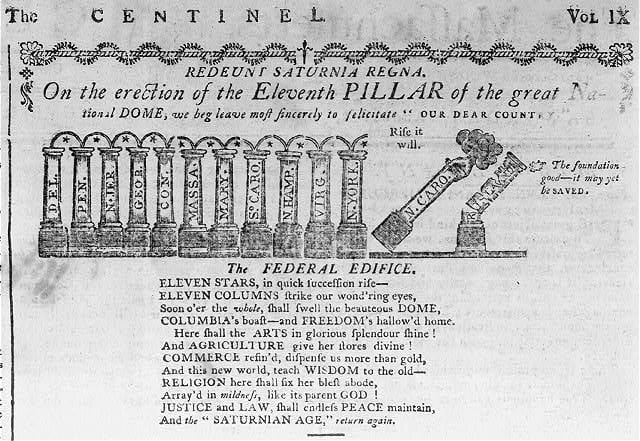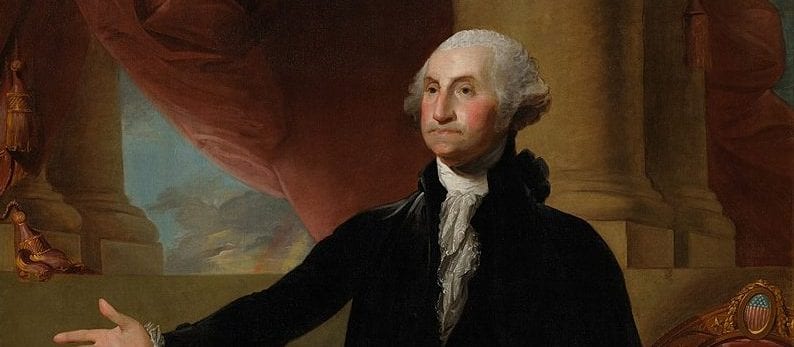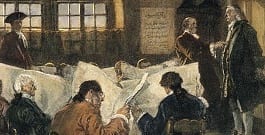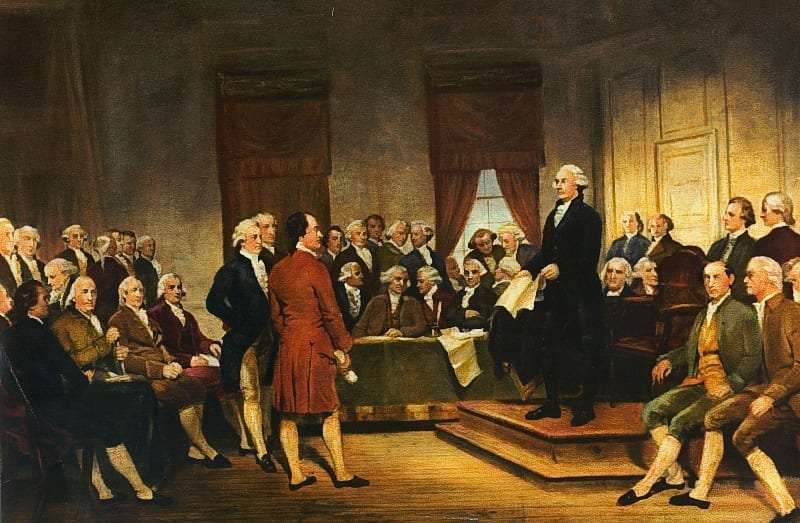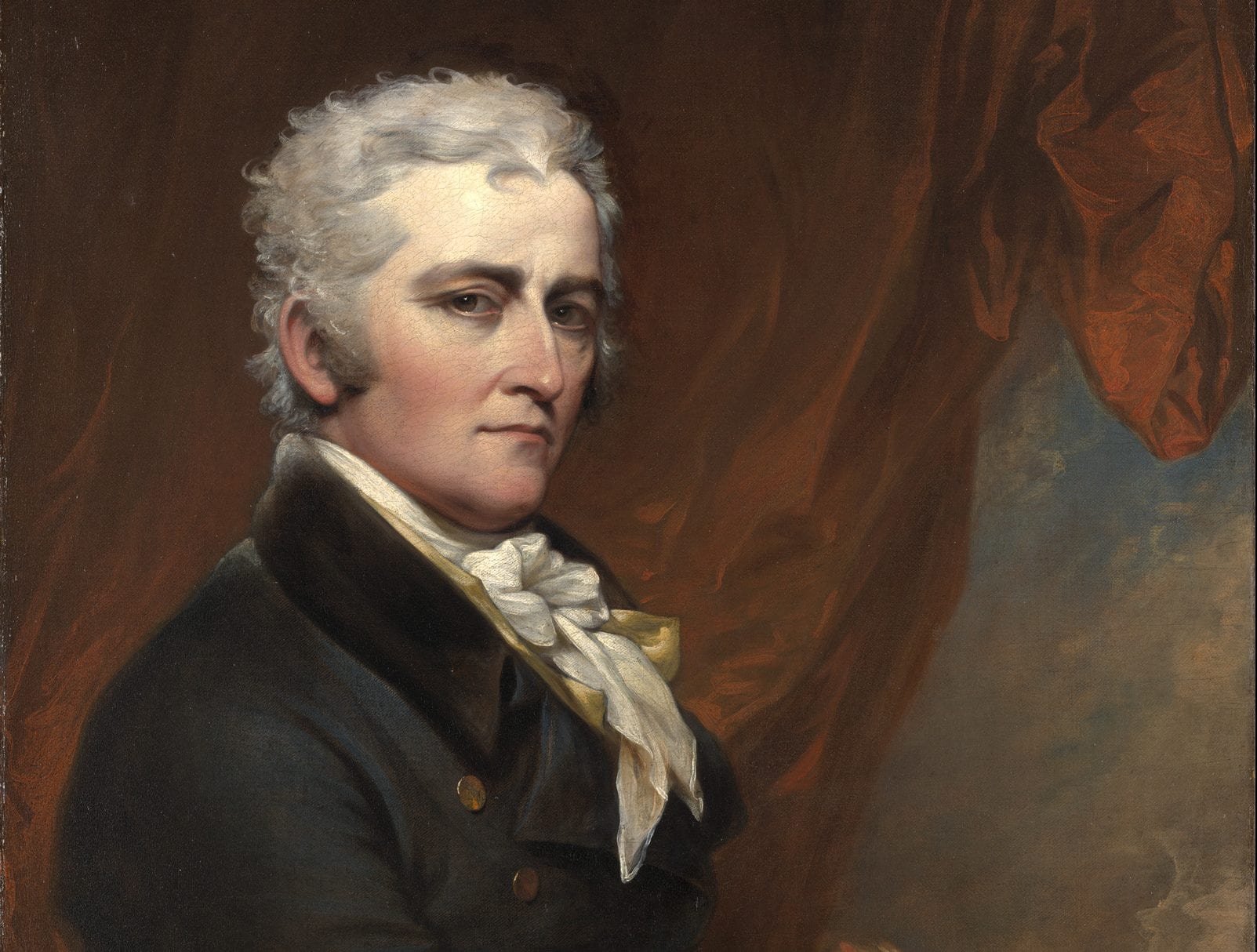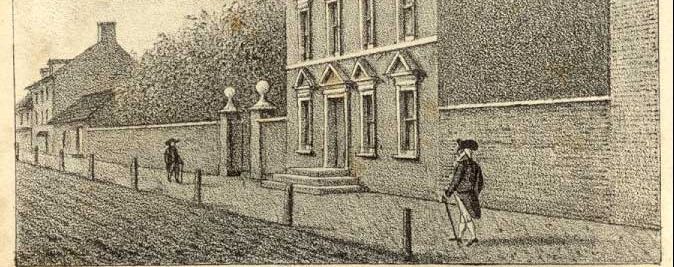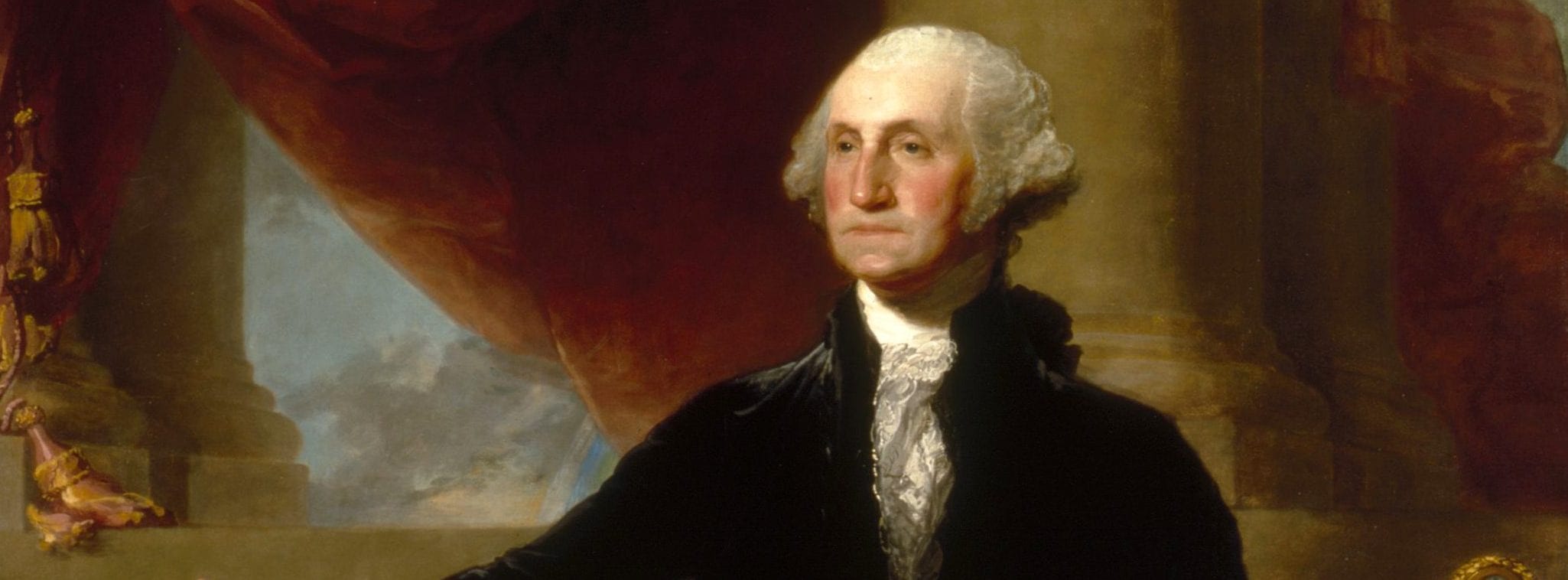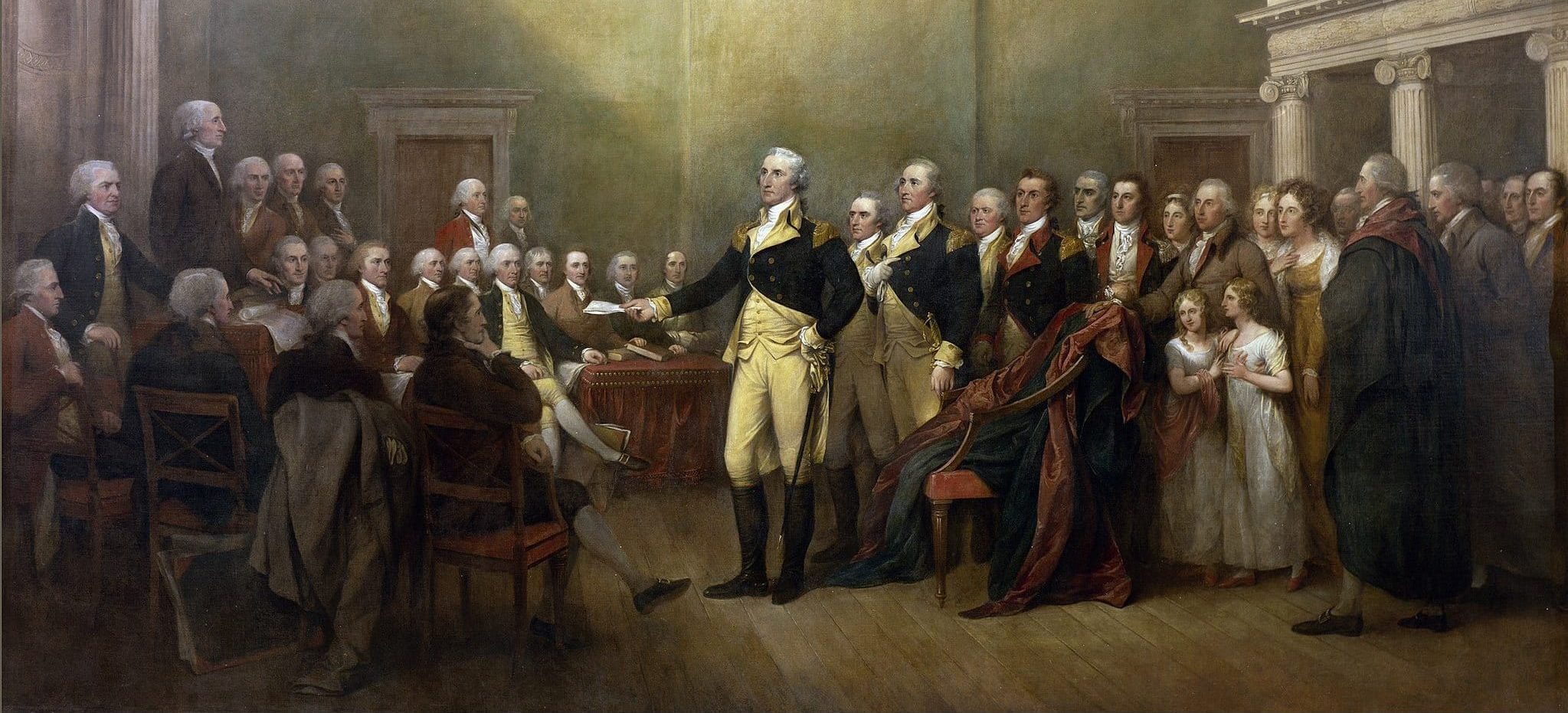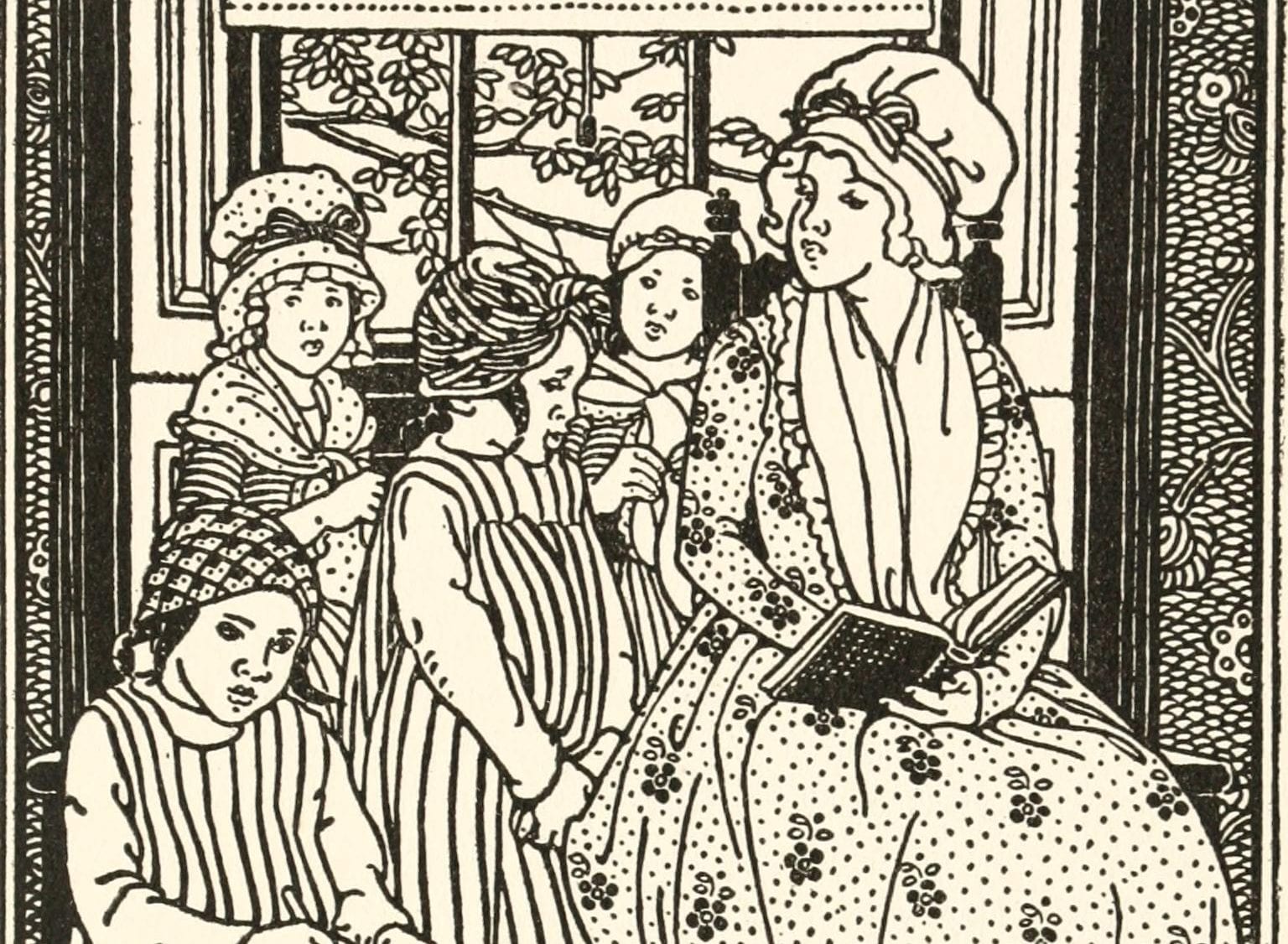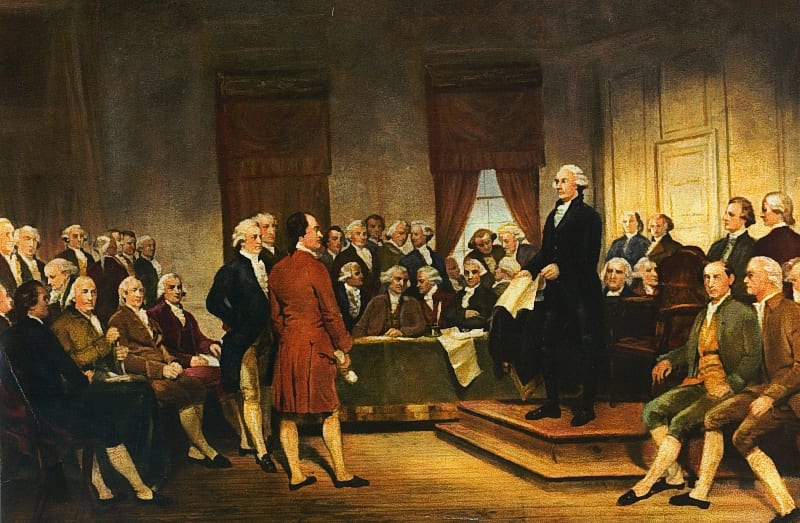
Introduction
It is often remarked by judicial scholars that Article III of the Constitution makes no mention of judicial review, the power of a court to rule a law unconstitutional. This is true. So the presumption is that the Framers did not intend to establish judicial review; otherwise they would have put it in the Constitution. Thus the question: where and when did judicial review make its appearance in our constitutional heritage? The conventional answer is that John Marshall, in Marbury v. Madison (1803), established judicial review. But the phrase “judicial review” is not mentioned in that case.
On three separate occasions – June 4, July 21, and August 15 – the delegates considered and reconsidered the first clause of the eighth resolution of the original Virginia Plan. That clause proposed that a Council of Revision – made up of the Executive and the Judiciary – be established to review congressional bills before they become law. Although this Madisonian idea of joint prior review was abandoned, the reasons for doing so are vital for understanding the Framers’ position on the role of the Judiciary. At the heart of the objection to giving the Judiciary joint prior or policy review with the Executive was the view that the Executive alone should have the power to review legislation before it became law and that the Judiciary should not possess the power of both prior and subsequent review. Prior review was a political function to be performed by the Executive alone. The following excerpts from the debates show that the Framers intended the Judiciary to have the power to review legislation after it had been passed by the Congress and signed by the president.
Source: Gordon Lloyd, ed., Debates in the Federal Convention of 1787 by James Madison, a Member (Ashland, OH: Ashbrook Center, 2014), 268–77, 373–78, 443.
June 4
The first clause of the eighth Resolution, relating to a council of revision, was next taken into consideration.
Mr. GERRY[1] doubts whether the Judiciary ought to form a part of it, as they will have a sufficient check against encroachments on their own department by their exposition of the laws, which involved a power of deciding on their constitutionality. In some States the judges had actually set aside laws, as being against the Constitution. This was done, too, with general approbation. It was quite foreign from the nature of their office to make them judges of the policy of public measures. He moves to postpone the clause, in order to propose, “that the National Executive shall have a right to negative any legislative act, which shall not be afterwards passed by —— parts of each branch of the National Legislature.”
Mr. KING[2] seconded the motion, observing that the judges ought to be able to expound the law, as it should come before them, free from the bias of having participated in its formation.
Mr. WILSON[3] thinks neither the original proposition nor the amendment goes far enough. If the Legislative, Executive, and Judiciary ought to be distinct and independent, the Executive ought to have an absolute negative. Without such a self-defense, the Legislature can at any moment sink it into non-existence. He was for varying the proposition, in such a manner as to give the Executive and Judiciary jointly an absolute negative.
On the question to postpone, in order to take Mr. GERRY’S proposition into consideration, it was agreed to, – Massachusetts, New York, Pennsylvania, North Carolina, South Carolina, Georgia, aye – 6; Connecticut, Delaware, Maryland, Virginia, no – 4.
July 21
Mr. WILSON moved . . . “that the Supreme National Judiciary should be associated with the Executive in the revisionary power.” This proposition had been before made and failed; but he was so confirmed by reflection in the opinion of its utility, that he thought it incumbent on him to make another effort. The Judiciary ought to have an opportunity of remonstrating against projected encroachments on the people as well as on themselves. It had been said, that the Judges, as expositors of the laws, would have an opportunity of defending their constitutional rights. There was weight in this observation; but this power of the Judges did not go far enough. Laws may be unjust, may be unwise, may be dangerous, may be destructive; and yet may not be so unconstitutional as to justify the Judges in refusing to give them effect. Let them have a share in the revisionary power, and they will have an opportunity of taking notice of those characters of a law, and of counteracting, by the weight of their opinions, the improper views of the Legislature. – Mr. MADISON[4] seconded the motion.
Mr. GORHAM[5] did not see the advantage of employing the Judges in this way. As Judges they are not to be presumed to possess any peculiar knowledge of the mere policy of public measures . . .
Mr. ELLSWORTH[6] approved heartily of the motion. The aid of the Judges will give more wisdom and firmness to the Executive. They will possess a systematic and accurate knowledge of the laws, which the Executive cannot be expected always to possess. The Law of Nations also will frequently come into question. Of this the Judges alone will have competent information.
Mr. MADISON considered the object of the motion as of great importance to the meditated Constitution. It would be useful to the Judiciary Department by giving it an additional opportunity of defending itself against Legislative encroachments. It would be useful to the Executive, by inspiring additional confidence and firmness in exerting the revisionary power. It would be useful to the Legislature, by the valuable assistance it would give in preserving a consistency, conciseness, perspicuity, and technical propriety in the laws, qualities peculiarly necessary, and yet shamefully wanting in our Republican codes. It would, moreover, be useful to the community at large, as an additional check against a pursuit of those unwise and unjust measures which constituted so great a portion of our calamities. If any solid objection could be urged against the motion, it must be on the supposition that it tended to give too much strength, either to the Executive, or Judiciary. He did not think there was the least ground for this apprehension. It was much more to be apprehended, that, notwithstanding this co-operation of the two departments, the Legislature would still be an overmatch for them. Experience in all the States had evinced a powerful tendency in the Legislature to absorb all power into its vortex. This was the real source of danger to the American Constitutions; and suggested the necessity of giving every defensive authority to the other departments that was consistent with republican principles . . . .
Mr. GERRY did not expect to see this point, which had undergone full discussion, again revived. The object he conceived of the revisionary power was merely to secure the Executive department against legislative encroachment. The Executive, therefore, who will best know and be ready to defend his rights, ought alone to have the defense of them. The motion was liable to strong objections. It was combining and mixing together the Legislative and the other departments. It was establishing an improper coalition between the Executive and Judiciary departments. It was making statesmen of the Judges, and setting them up as the guardians of the rights of the people. He relied, for his part, on the Representatives of the people, as the guardians of their rights and interests. It was making the expositors of the laws the legislators, which ought never to be done. A better expedient for correcting the laws would be to appoint, as had been done in Pennsylvania, a person or persons of proper skill, to draw bills for the Legislature.
Mr. STRONG[7] thought, with Mr. GERRY, that the power of making, ought to be kept distinct from that of expounding, the laws. No maxim was better established. The Judges in exercising the function of expositors might be influenced by the part they had taken in passing the laws . . . .
Mr. MADISON could not discover in the proposed association of the Judges with the Executive, in the revisionary check on the Legislature, any violation of the maxim which requires the great departments of power to be kept separate and distinct. On the contrary, he thought it an auxiliary precaution, in favor of the maxim. If a constitutional discrimination of the departments on paper were a sufficient security to each against encroachments of the others, all further provisions would indeed be superfluous. But experience had taught us a distrust of that security; and that it is necessary to introduce such a balance of powers and interests as will guarantee the provisions on paper. Instead, therefore, of contenting ourselves with laying down the theory in the Constitution, that each department ought to be separate and distinct, it was proposed to add a defensive power to each, which should maintain the theory in practice. In so doing, we did not blend the departments together. We erected effectual barriers for keeping them separate. The most regular example of this theory was in the British Constitution. Yet it was not only the practice there to admit the Judges to a seat in the Legislature, and in the Executive Councils, and submit to their previous examination all laws of a certain description, but it was a part of their Constitution that the Executive might negative any law whatever; a part of their Constitution which had been universally regarded as calculated for the preservation of the whole. The objection against a union of the Judiciary and Executive branches, in the revision of the laws, had either no foundation, or was not carried far enough. If such a union was an improper mixture of powers, or such a Judiciary check on the laws was inconsistent with the theory of a free constitution, it was equally so to admit the Executive to any participation in the making of laws; and the revisionary plan ought to be discarded altogether . . . .
Mr. WILSON. The separation of the departments does not require that they should have separate objects; but that they should act separately, though on the same objects. It is necessary that the two branches of the Legislature should be separate and distinct, yet they are both to act precisely on the same object.
Mr. GERRY had rather give the Executive an absolute negative for its own defense, than thus to blend together the Judiciary and Executive departments. It will bind them together in an offensive and defensive alliance against the Legislature, and render the latter unwilling to enter into a contest with them . . . .
Mr. GORHAM. All agree that a check on the Legislature is necessary. But there are two objections against admitting the Judges to share in it, which no observations on the other side seem to obviate. The first is, that the Judges ought to carry into the exposition of the laws no prepossessions with regard to them; the second, that, as the Judges will outnumber the Executive, the revisionary check would be thrown entirely out of the Executive hands, and, instead of enabling him to defend himself, would enable the Judges to sacrifice him . . . .
On the question on Mr. WILSON’S motion for joining the judiciary in the revision of laws, it passed in the negative, — Connecticut, Maryland, Virginia, aye — 3; Massachusetts, Delaware, North Carolina, South Carolina, no — 4; Pennsylvania, Georgia, divided; New Jersey, not present.
. . . [A] Resolution giving the Executive a qualified veto, requiring two-thirds of each branch of the Legislature to overrule it, was then agreed to nem. con.[8]
August 15
. . . Mr. MADISON moved . . . : “Every bill which shall have passed the two Houses shall, before it become a law, be severally presented to the President of the United States, and to the Judges of the Supreme Court, for the revision of each. If, upon such revision, they shall approve of it, they shall respectively signify their approbation by signing it; but if, upon such revision, it shall appear improper to either, or both, to be passed into a law, it shall be returned, with the objections against it, to that House in which it shall have originated, who shall enter the objections at large on their Journal, and proceed to reconsider the bill: but if, after such reconsideration, two-thirds of that House, when either the President, or a majority of the judges shall object, or three-fourths, where both shall object, shall agree to pass it, it shall, together with the objections, be sent to the other House; by which it shall likewise be reconsidered, and, if approved by two-thirds, or three-fourths of the other House, as the case may be it shall become a law.”
Mr. WILSON seconds the motion.
Mr. PINCKNEY[9] opposed the interference of the Judges in the legislative business: it will involve them in parties, and give a previous tincture to their opinions.
Mr. MERCER[10] heartily approved the motion. It is an axiom that the Judiciary ought to be separate from the Legislative; but equally so, that it ought to be independent of that department. The true policy of the axiom is, that legislative usurpation and oppression may be obviated. He disapproved of the doctrine, that the Judges, as expositors of the Constitution, should have authority to declare a law void. He thought laws ought to be well and cautiously made, and then to be uncontrollable.
Mr. GERRY. This motion comes to the same thing with what has been already negatived.
On the question on the motion of Mr. MADISON, —
Delaware, Maryland, Virginia, aye, — 3; New Hampshire, Massachusetts, Connecticut, New Jersey Pennsylvania, North Carolina, South Carolina, Georgia, no, — 8.
Mr. GOUVERNEUR MORRIS[11] regretted that something like the proposed check could not be agreed to. He dwelt on the importance of public credit, and the difficulty of supporting it without some strong barrier against the instability of legislative assemblies. He suggested the idea of requiring three-fourths of each House to repeal laws where the President should not concur. He had no great reliance on the revisionary power, as the Executive was now to be constituted (elected by Congress). The Legislature will contrive to soften down the President. He recited the history of paper emissions, and the perseverance of the legislative assemblies in repeating them, with all the distressing effects of such measures before their eyes. Were the National Legislature formed, and a war was now to break out, this ruinous expedient would be again resorted to, if not guarded against. The requiring three-fourths to repeal would, though not a complete remedy, prevent the hasty passage of laws, and the frequency of those repeals which destroy faith in the public, and which are among our greatest calamities.
Mr. DICKINSON[12] was strongly impressed with the remark of Mr. MERCER, as to the power of the Judges to set aside the law. He thought no such power ought to exist. He was, at the same time, at a loss what expedient to substitute. The Justiciary of Arragon, he observed, became by degrees the law-giver . . . .
Mr. SHERMAN.[13] Can one man be trusted better than all the others, if they all agree? This was neither wise nor safe. He disapproved of judges meddling in politics and parties. We have gone far enough, in forming the negative as it now stands . . . .
Mr. GORHAM saw no end to these difficulties and postponements. Some could not agree to the form of government before the powers were defined. Others could not agree to the powers till it was seen how the government was to be formed. He thought a majority as large a quorum as was necessary. It was the quorum almost every where fixed in the United States.
Mr. WILSON, after viewing the subject with all the coolness and attention possible, was most apprehensive of a dissolution of the Government from the Legislature swallowing up all the other powers. He remarked, that the prejudices against the Executive resulted from a misapplication of the adage, that the Parliament was the palladium of liberty. Where the Executive was really formidable, king and tyrant were naturally associated in the minds of people; not legislature and tyranny. But where the Executive was not formidable, the two last were most properly associated. After the destruction of the King in Great Britain, a more pure and unmixed tyranny sprang up in the Parliament, than had been exercised by the monarch. He insisted that we had not guarded against the danger on this side, by a sufficient self-defensive power, either to the Executive or Judiciary Department. . . .
August 27
. . . Doctor JOHNSON[14] moved to insert the words, “this Constitution and the,” before the word “laws.”
Mr. MADISON doubted whether it was not going too far, to extend the jurisdiction of the Court generally to cases arising under the Constitution, and whether it ought not to be limited to cases of a judiciary nature. The right of expounding the Constitution, in cases not of this nature, ought not to be given to that department.
The motion of Doctor Johnson was agreed to, nem. con., it being generally supposed, that the jurisdiction given was constructively limited to cases of a judiciary nature . . . .
Mr. GOUVERNEUR MORRIS wished to know what was meant by the words, “In all the cases before mentioned it [jurisdiction] shall be appellate, with such exceptions, etc.,” — whether it extended to matters of fact as well as law, — and to cases of common law, as well as civil law.
Mr. WILSON. The Committee, he believed, meant facts as well as law, and common as well as civil law. The jurisdiction of the Federal court of appeals had, he said, been so construed.
Mr. DICKINSON moved to add, after the word “appellate,” the words, “both as to law and fact”; which was agreed to, nem. con.
- 1. Elbridge Gerry, Massachusetts
- 2. Rufus King, Massachusetts
- 3. James Wilson, Pennsylvania
- 4. James Madison, Virginia
- 5. Nathaniel Gorham, Massachusetts
- 6. Oliver Ellsworth, Connecticut
- 7. Caleb Strong, Massachusetts
- 8. an abbreviation of nemine contradicente, Latin for “no one dissenting”
- 9. Charles Pinckney, South Carolina
- 10. John F. Mercer, Maryland
- 11. Gouverneur Morris, Pennsylvania
- 12. John Dickinson, Delaware
- 13. Roger Sherman, Connecticut
- 14. William S. Johnson, Connecticut

Conversation-based seminars for collegial PD, one-day and multi-day seminars, graduate credit seminars (MA degree), online and in-person.




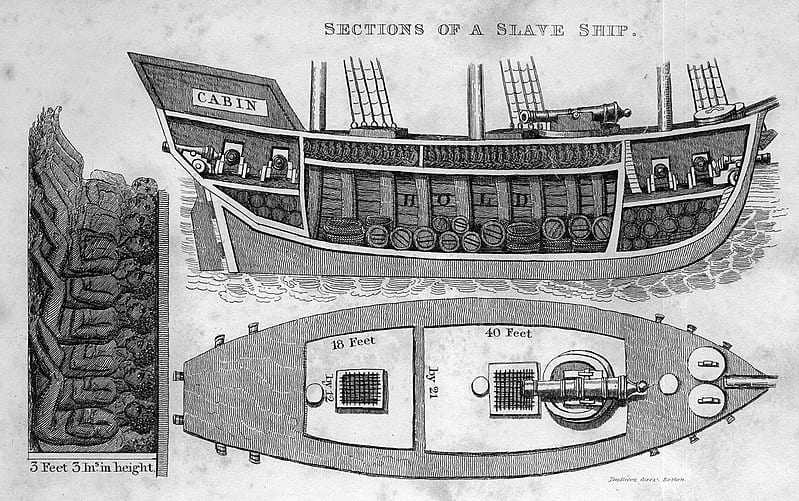






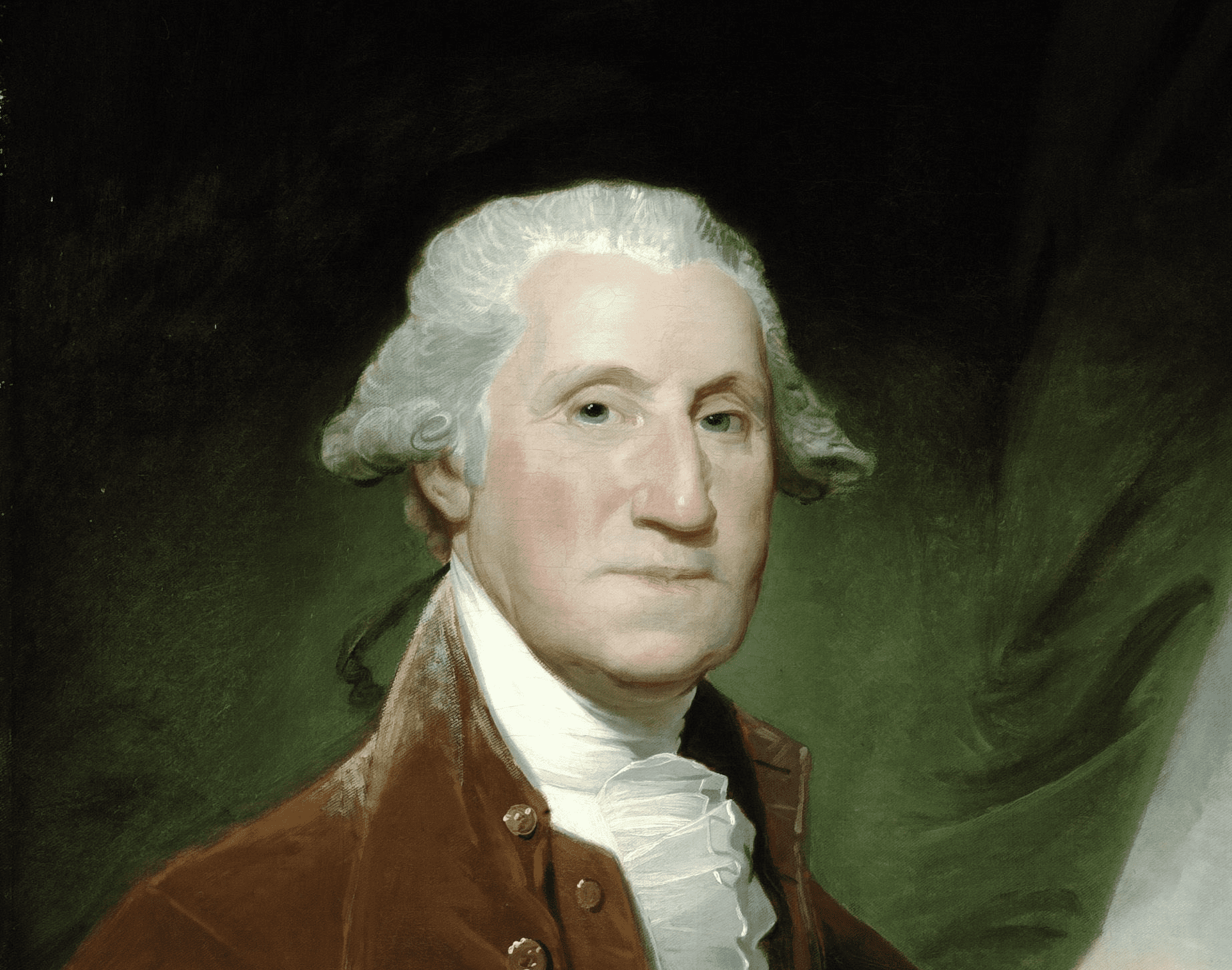















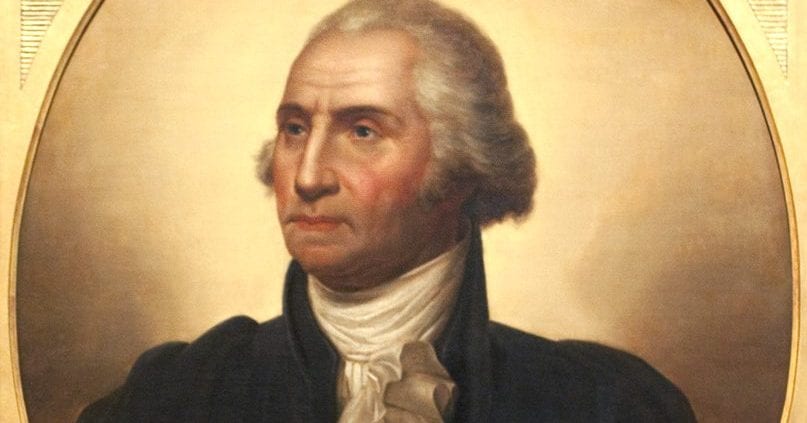
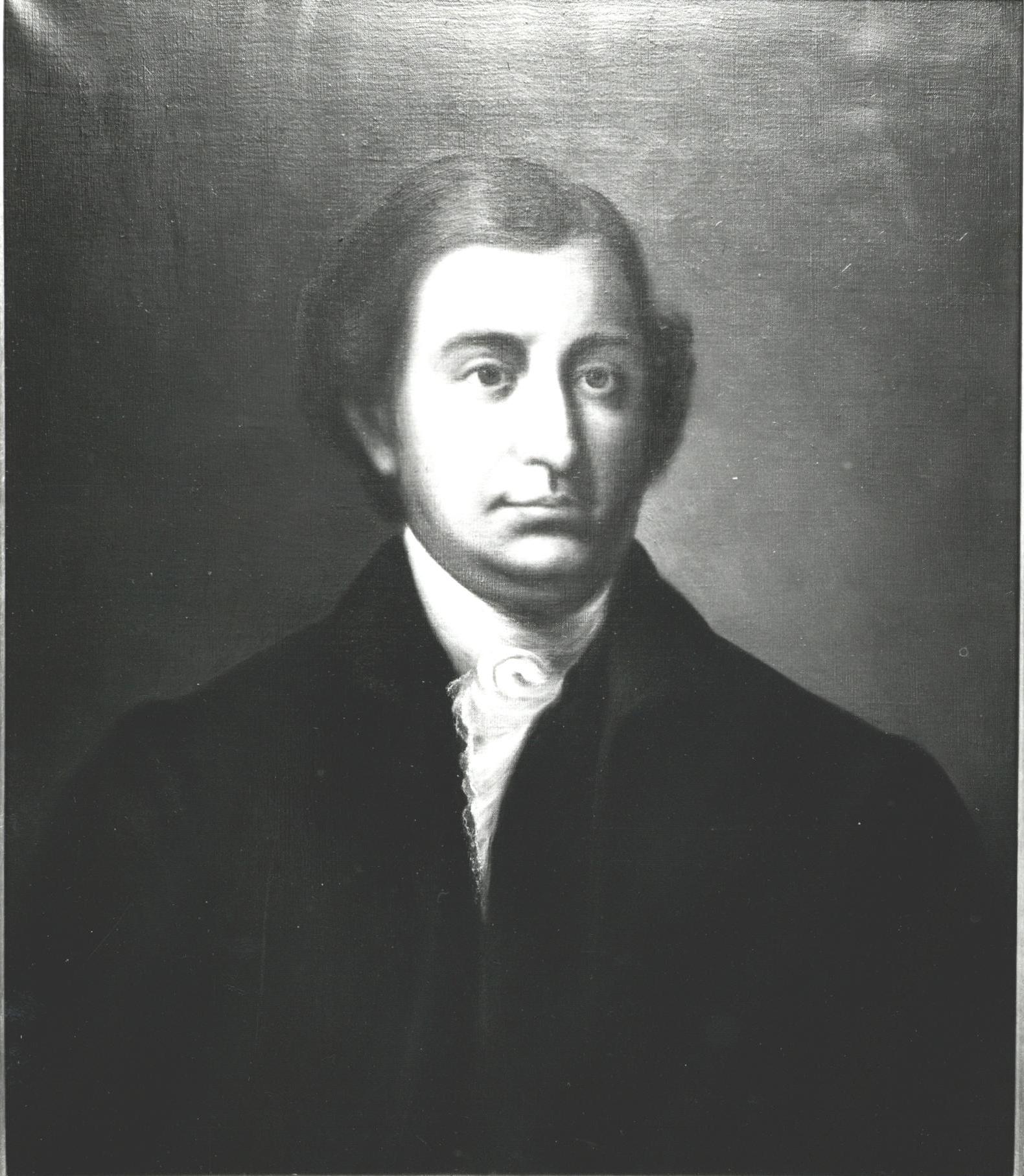
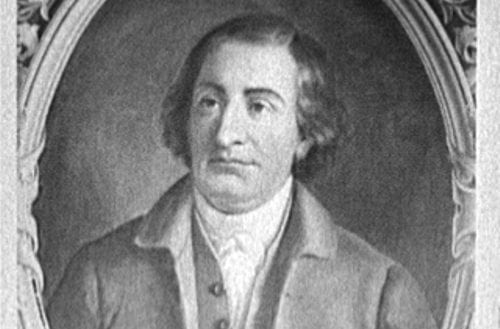
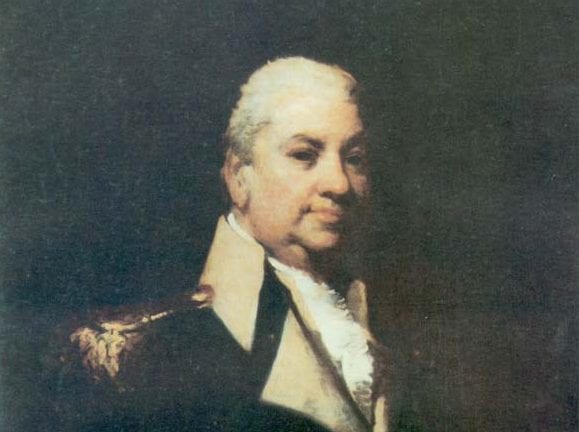




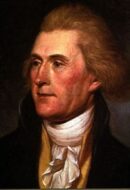













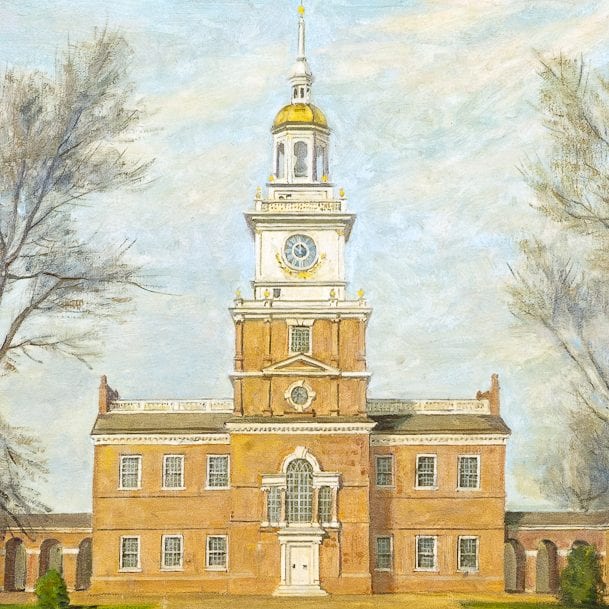

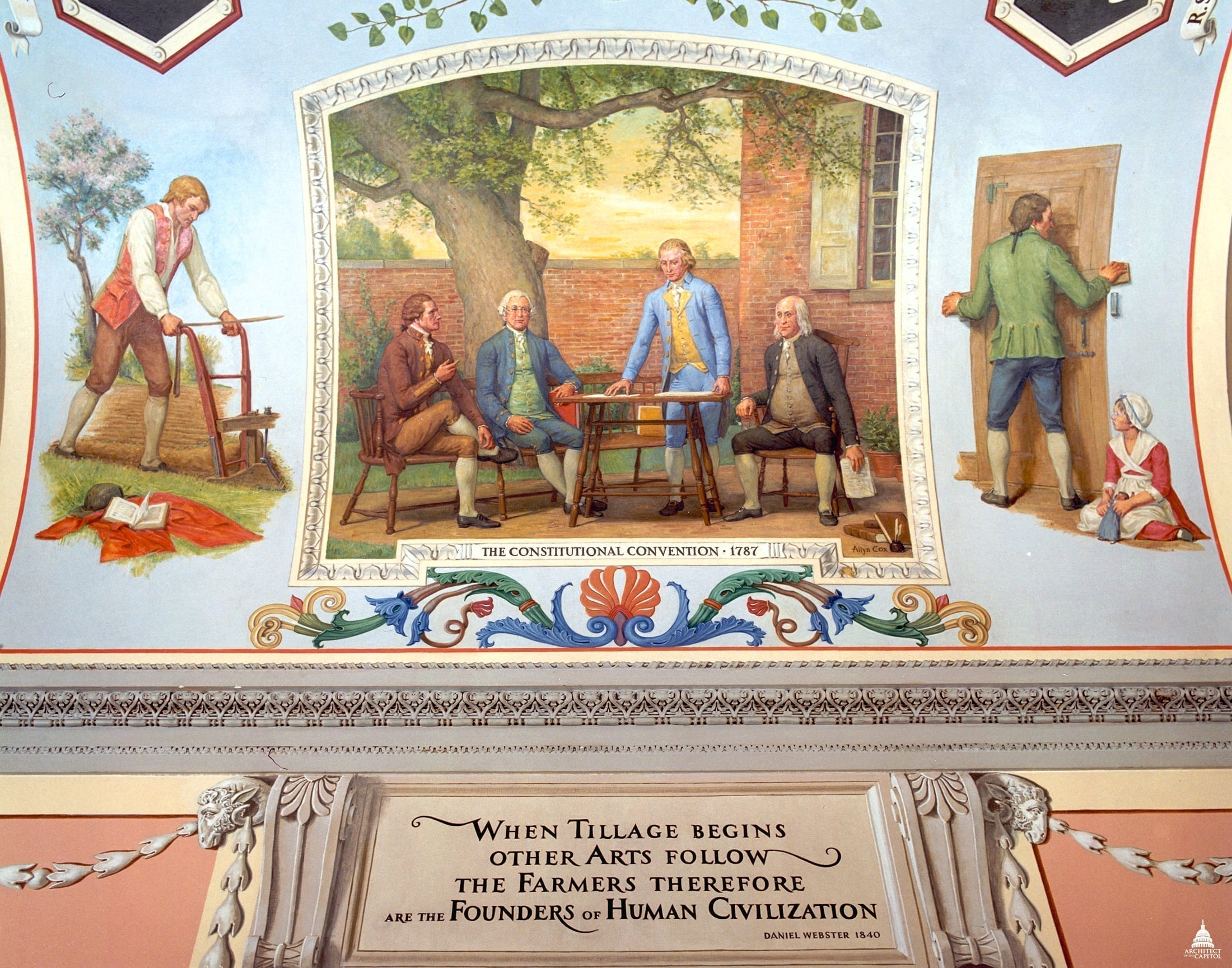

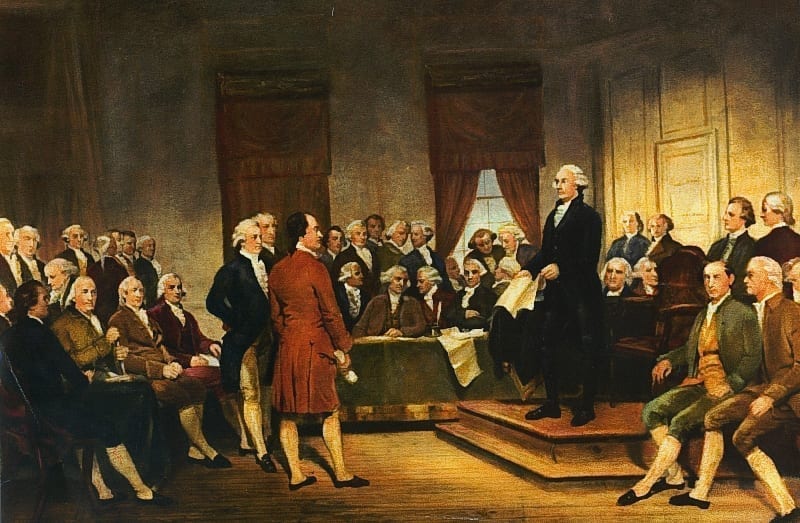


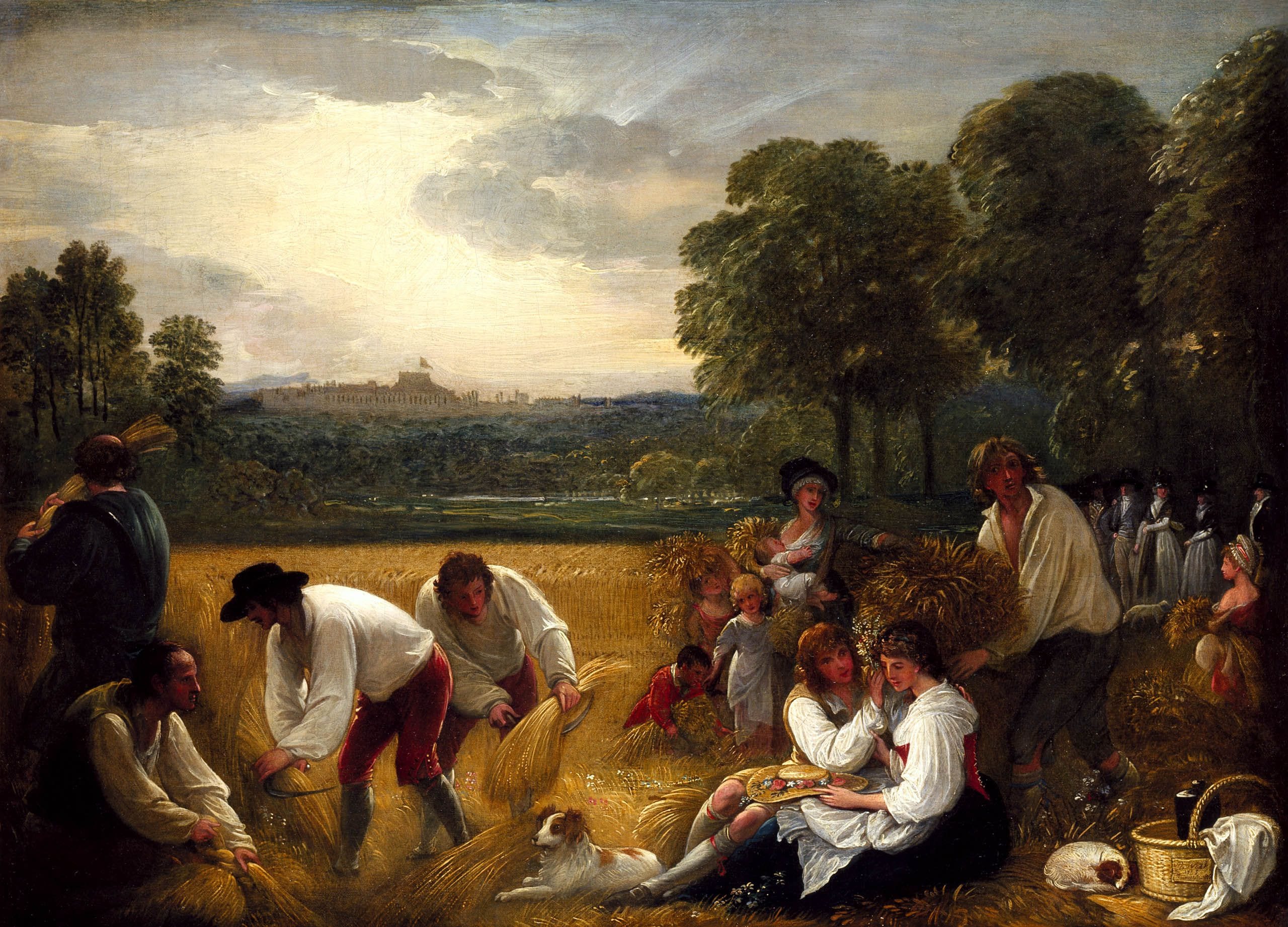


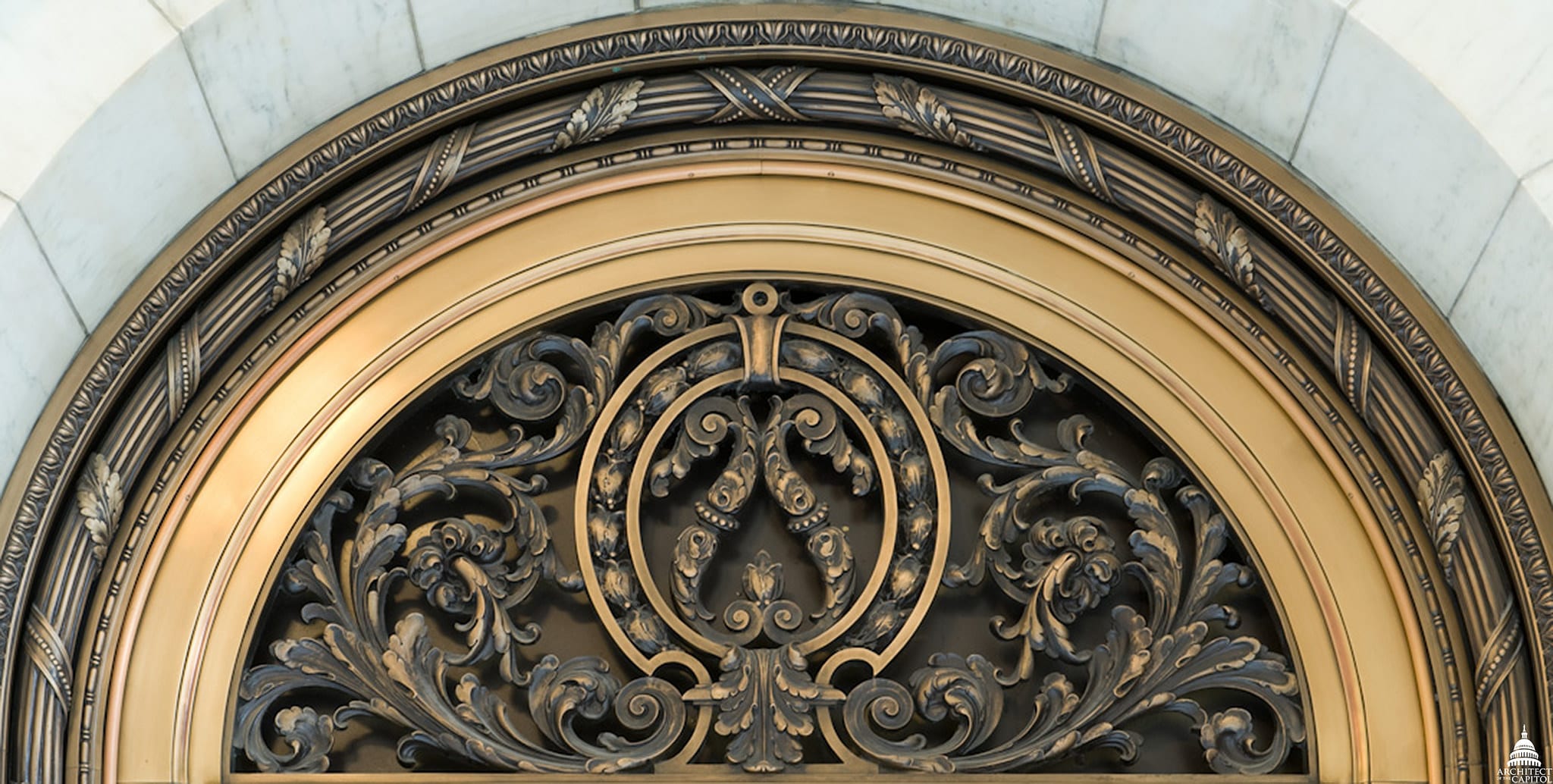













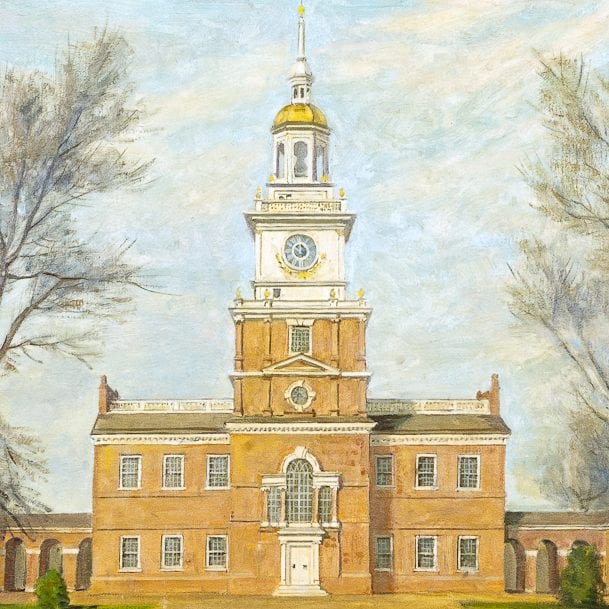
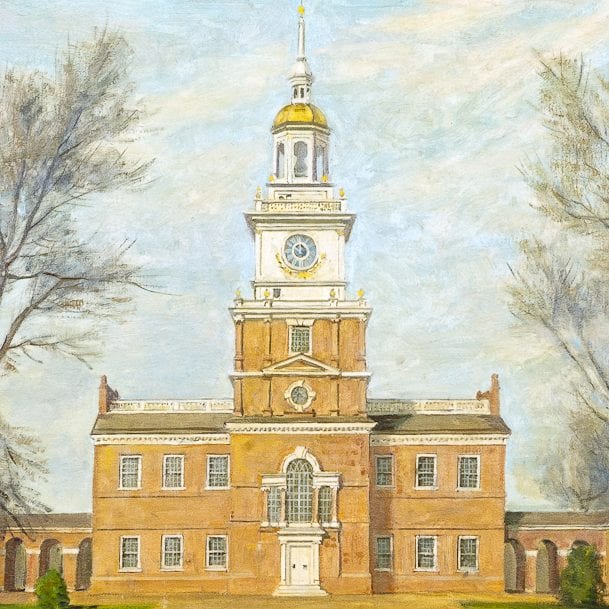






































































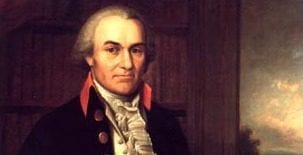



























![Finley, A. (1829) Pennsylvania. Philada. [Map] Retrieved from the Library of Congress, https://www.loc.gov/item/98688548/.](/content/uploads/2024/02/Map-of-PA--273x190.jpg)





















